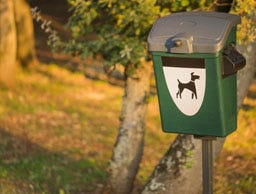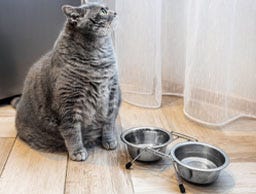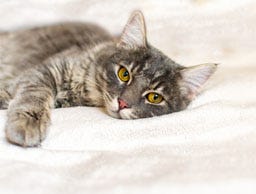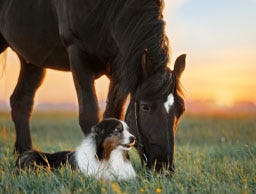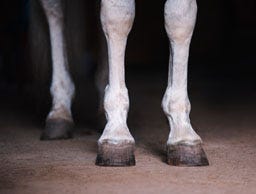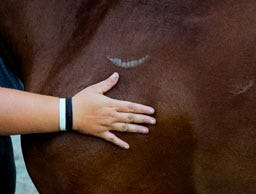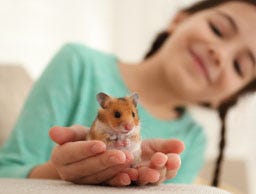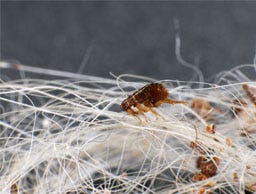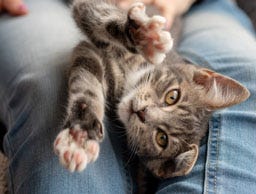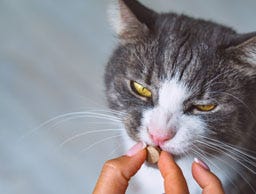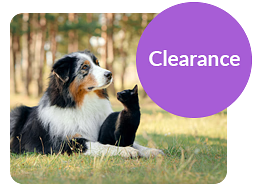What is Catnip and What Does it Do?
Catnip is one of the best-utilized herbs in the pet ownership community, helping to make cats more playful or calm in seconds! But what is it about this plant that drives cats up the wall (literally or otherwise).
Find out what catnip does and how it works so you can better introduce catnip into your cat’s playtime.
What is Catnip?
Catnip (Nepeta cataria) is a hardy perennial herb (from the mint family) that sprouts lovely lavender-coloured flowers that make a pretty addition to any garden and deters a great many pests that otherwise threaten plants. This makes it a popular herb for use in natural bug sprays, and some even make tea from the leaves to relieve coughs or soothe the digestive system. However, catnip is now well known for something else entirely, and that’s how it affects our favourite felines.
Cats, by nature, have far more heightened senses than humans and other animals due to an extra scent organ at the top of their mouth called the vomeronasal gland. This organ allows cats to detect even more smells from things in their environment that go unnoticed by humans or other animals, particularly when it comes to catnip. Catnip leaves contain an oil called Nepetalactone, which temporarily enhances the mood of most cats, sometimes as a burst of euphoria or affection.
Now, the pet industry uses catnip in various forms to encourage a cat’s natural instincts to play and explore. This makes for adorable playtimes and even offers support as a cat training aid.
But what exactly does it do to your cat?


What Does Catnip Do To Cats?
Each cat will react to catnip differently (if at all), but a common theme is how mellow a cat becomes, having smelled the oil in catnip leaves, either from a live plant or other forms like catnip sprays or dried catnip for cats.
Some of the other effects of catnip on cats include, but are not limited to,
- Being more affectionate
- Feeling relaxed
- Signs of happiness and contentment in cats
- Increased curiosity
- Overt playfulness
- And more!
Some cats have even been known to show signs of aggression after sniffing catnip, which studies have shown is due to catnip mimicking feline sex hormones. While this usually makes cats more playful and affectionate, it may also exacerbate territorial behaviours, especially if you have a multi-cat household.
What Does Catnip Do To Kittens?
Another great thing about catnip is that it’s safe for cats of all ages! Even kittens can be exposed to the substance without it upsetting their natural development in any way. That said, young kittens are unlikely to show true reactions to catnips until they’re 6 months old, and overexposure may desensitise them to the scent in adulthood.
So, while giving catnip to kittens won’t hurt them in any way, it may be better to hold off introducing them to it until they’re a little older and can experience the full effect. After all, kittens are playful enough on their own!
Is Catnip Bad for Cats?
When used right, catnip is actually incredibly good for cats! Not only does it offer them great enrichment and euphoria for a short period of time, but it can also help them be more curious about their surroundings and make typically shy cats bolder. This makes catnip a popular choice for a natural cat-calming remedy for cats settling into a new home.
However, it’s important to note that not all cats are the same, and some may only respond to certain forms of catnip or none at all! What’s more, cats can build up resistance to catnip's effects if they’re overexposed until it has no impact on them at all.
This is why it’s important to use catnip infrequently or at sporadic intervals so your cat can continue to enjoy its wonderous effects for a lifetime!
Can Cats Eat Catnip?
Absolutely, they can! And many do, either intentionally or while grooming after having had a good roll in the stuff. Catnip is not toxic to cats in any way, and it is perfectly safe for them to eat either fresh or dried.
That said, you should be wary of just how much catnip your cat is consuming as too much may cause upset stomachs in cats as they’re obligate carnivores, and so don’t typically have much vegetation in their diet.
Does Catnip Work on Dogs?
Despite its name, catnip can also affect dogs. This non-toxic herb tends to have a stimulant-like impact on cats, whereas it has the opposite effect on dogs, making them feel calmer. The effect of catnip in dogs is mild, so if you're looking for ways to keep your dog calm, we'd recommend trying a dog calmer that is formulated for their species.


How To Use Catnip
Brands across the world are always looking for new and innovative ways to utilise catnip top the best of its ability, and cats certainly aren’t complaining. Some of the most popular forms of catnip include:
Catnip Sprays
These easy-to-use sprays come in bottles of various sizes and typically include only catnip oil and distilled water for a potent and effective spritz. Catnip sprays like the KONG® Naturals™ Premium Catnip Spray, are best used when trying to entice your cat to return to a toy they have lost interest in or to encourage them to use new cat trees or explore new spaces.
Catnip Toys
When it comes to toys, cats can be very picky about what they’ll play with. This is why many cat toy brands will incorporate catnip into their toys somehow, like sewing a pouch of dried catnip inside like this Yeowww! Catnip Banana or providing a sachet for you to apply yourself. Catnip toys are a great choice if your cat is stubborn about accepting new toys or exercising in general.
Just remember that all cats respond to catnip differently, and choosing a catnip toy does not necessarily mean your cat will play with it.
Catnip Balls
A new use for catnip that is rising in popularity is catnip balls. These handy toys are made from compressing catnip into a ball that is then mounted onto a roller so your cat can lick and rub against it to their heart’s content. They are an ideal choice for anyone who is tired of tidying up dried catnip leaves after their cat is done rolling in them. Cats with long hair may also benefit from catnip balls since they do not flake to the extent of loose dried leaves and so will not get stuck or matt their fur.
To avoid desensitising your cat, only allow access to the catnip balls for a brief period of time and replace the cap once they've had their fill.


Catnip Treats
Another great use for catnip is in cat treats, like these Catnip Dreamies, which can help you spark spontaneous fun in your cat with a single treat. Even cats who don’t respond much to catnip in its usual forms is bound to come running when you shake a bag of these, making them great for cats that aren’t big on playtime or are incredibly food orientated.
As with all treats, make sure you read the manufacturer's daily allowance recommendations and adjust your cat's meals accordingly when using treats.
Catnip Plants
If it’s not broken, why fix it? Catnip is a wonderful, natural, and non-toxic plant, and it’s super easy to grow. All you need is to plant a catnip seed or plant in free-draining soil during the springtime (the earlier, the better) and make sure they get plenty of sunshine. Thanks to these plants being so hardy, they won’t require much maintenance once they’re established and can mostly be left alone to flourish in your garden.
Bear in mind that having a catnip plant in your garden may attract more feline friends, which could cause territorial disputes between your existing cat and the visitors. If growing catnip indoors, try to limit your cat’s exposure by keeping the plant in a cat-free room so they can continue to enjoy it without becoming desensitised.
If you're not one for gardening, then dried catnip like the KONG® Naturals™ Premium Catnip Flakes for Cats.
Whatever way you choose to incorporate catnip into your cat's life, remember that while catnip is non-addictive, some cats may still become obsessed with the stuff, so be sure to store it somewhere safe and out of your cat’s way between playtimes. Also, cats on catnip may exhibit euphoric behaviours such as “the zoomies”, so make sure to keep an eye on them in case they decide to do anything potentially dangerous.
If you’re looking to bring an added flair of fun to your cat’s day, then take a look at our great range of catnip products, including sprays, toys, treats and more!
This post is an opinion and should only be used as a guide. You should thoroughly discuss any change to your pet’s care or lifestyle with your vet before starting any program or treatment.












